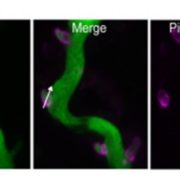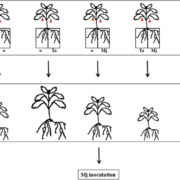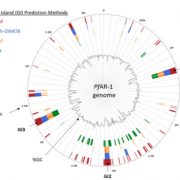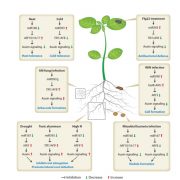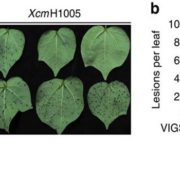Extremely flexible infection programs in a fungal plant pathogen
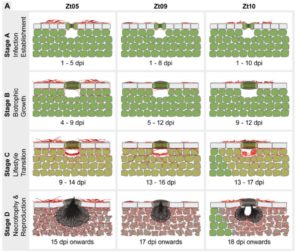 Filamentous plant pathogens have developed an extra-ordinary level of dynamic genome architecture that adapts to changing host environment in the best possible way to promote infection. There are very limited studies describing the impact of this genome plasticity on phenotypic variation. Haueisen et al. have shown the effect of genome variability on infection phenotypes in the hemibiotrophic pathogen of wheat Zymoseptoria tritici. The authors have studied three isolates of this pathogen which were collected across varied geographical regions and which show a variation in genome and gene content. All the isolates cause similar phenotypes on a susceptible wheat cultivar despite the genomic variation. Comparative transcriptomics of these three pathogen isolates across different stages of disease cycle show 20% of the differentially expressed genes (DEGs) between the isolates, a significant number of which encode for effectors. Furthermore, these DEGs fall within the region of transposable elements and show signatures of histone modification. Hence, this study highlights the importance of genome plasticity in fungal plant pathogens that exhibit differential infection programs to adapt to the changing host environment across various geographical regions. (Summary by Amey Redkar) bioRxiv
Filamentous plant pathogens have developed an extra-ordinary level of dynamic genome architecture that adapts to changing host environment in the best possible way to promote infection. There are very limited studies describing the impact of this genome plasticity on phenotypic variation. Haueisen et al. have shown the effect of genome variability on infection phenotypes in the hemibiotrophic pathogen of wheat Zymoseptoria tritici. The authors have studied three isolates of this pathogen which were collected across varied geographical regions and which show a variation in genome and gene content. All the isolates cause similar phenotypes on a susceptible wheat cultivar despite the genomic variation. Comparative transcriptomics of these three pathogen isolates across different stages of disease cycle show 20% of the differentially expressed genes (DEGs) between the isolates, a significant number of which encode for effectors. Furthermore, these DEGs fall within the region of transposable elements and show signatures of histone modification. Hence, this study highlights the importance of genome plasticity in fungal plant pathogens that exhibit differential infection programs to adapt to the changing host environment across various geographical regions. (Summary by Amey Redkar) bioRxiv


